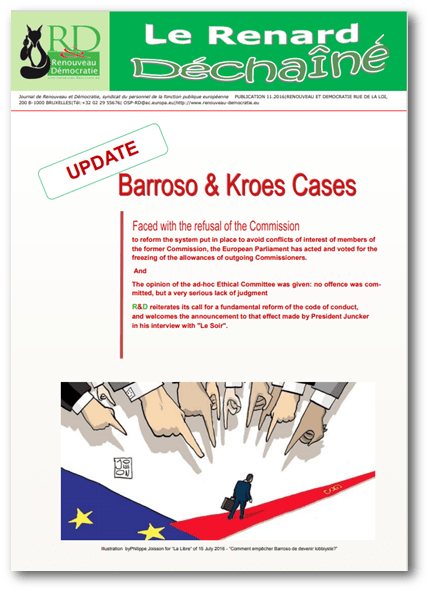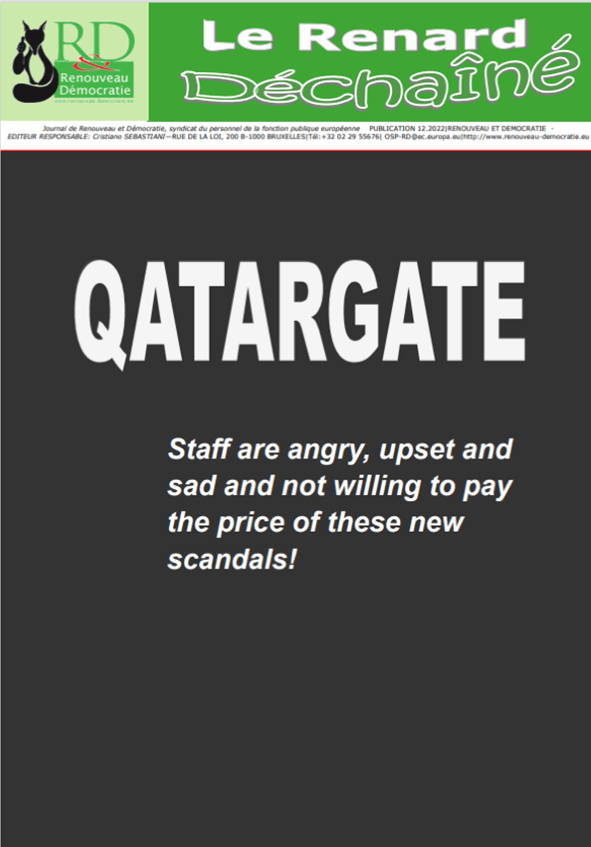SETTING UP OF THE INDEPENDENT EU ETHICS BODY
Let’s discuss it with
Member of the European Parliament, Rapporteur for this file
Monday 15 April from 12.45 pm to 2.30 pm
The negotiations on the composition and mandate of EU’s independent ethics body have been long and quite difficult.
Can we expect the draft final compromise to be up to the seriousness of the credibility crisis affecting the European institutions, particularly in the wake of Qatargate?
Reminders of the facts
R&D always stands up for the highest standards of integrity and independence of the EU institutions and has always worked at all levels to ensure that the rules on “revolving doors” and conflicts of interest are strengthened in order to avoid new scandals, underling that the effects of unresolved conflicts of interest can lead to corruption and undermine trust that EU citizens have in the EU Institutions, the EU Project and our civil service.
In reaction to the outrageous revolving door case of former President Barroso R&D supported before the press, the European Ombudsman, the Commission, the European Parliament and the Council a staff petition entitled “Not in our name”, initiated by a collective of colleagues, signed by 152,000 people, including thousands of staff members The great success of this petition led the Commission to review the Code of Conduct for the former members of the College by deciding to lengthen the period of prohibition on revolving doors for former Commissioners and former Presidents and by strengthening the powers of the panel of external members responsible for ensuring its proper application.
Just like the European Ombudsman and the EP, R&D stressed that, although it was a step in the right direction in terms of taking account of citizens’ expectations, more structural measures had to be implemented, inter alia setting up a “strong, independent ethical body with a real power of investigation and sanction” .
On the one hand, we were glad to notice that in order to provide an appropriate answer to the dramatic consequences of Qatargate, President Von der Leyen once again called for the creation of an independent ethics body common to all EU Institutions, that she had proposed back in 2019 when appointed, underling that “The principles of having such a body in charge of ethics, with clear rules about what should be reviewed, how and when and what should be published, would be a big step forward.”
On the other hand, thanks to determination of President Metsola and under Daniel Freund’s invaluable leadership as rapporteur for this dossier, the EP has confirmed that the setting up of an independent EU Ethics body was an important step towards eliminating conflicts of interest and revolving doors concerns in the EU institutions, as it is indisputable that self-regulation has not been able to prevent scandals, pointing out that such an independent body should be accessible to all EU institutions with the power to open investigations into possible conflicts of interest or ‘revolving door’ cases.
R&D fully shares the opinion that independent monitoring can finally contribute to credible enforcement of the rules, put an end to conflicts of interest and “revolving doors” between the institutions and lobbying, and start to regain the trust of citizens.
The negotiations on the composition and mandate of the Independent EU Ethics body have been long and quite difficult.
Can we expect the draft final compromise to be up to the seriousness of the credibility crisis affecting the European institutions, particularly in the wake of Qatagate?


